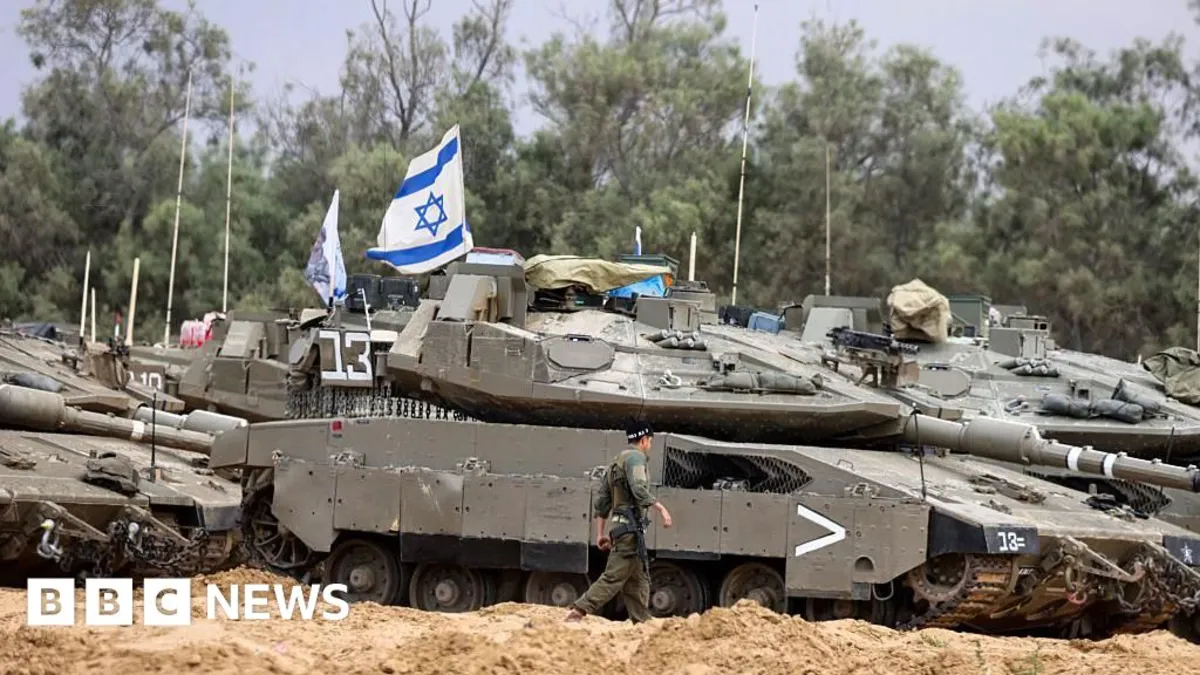
The Israeli military has started to call up tens of thousands of reservists as it aims to intensify and expand its operations in Gaza. The Israel Defense Forces (IDF) announced that this increased military presence is focused on two primary objectives: securing the return of hostages being held in Gaza and defeating Hamas militants. This decision comes in the wake of a recent military offensive that escalated after a ceasefire collapsed, raising questions about the effectiveness of the operation in achieving its goals.
Critics are voicing concerns that the current military strategy, which follows the breakdown of the ceasefire, has not guaranteed the release of captives. The actions of Israeli Prime Minister Benjamin Netanyahu are under scrutiny, with many questioning his true objectives in the ongoing conflict. The military's stated plan includes operations in new areas and the destruction of all infrastructure, both above and below ground, as part of its broader campaign against Hamas.
The Israeli security cabinet is expected to convene on Sunday to discuss and potentially approve the expanded military operations in Gaza. International negotiations aimed at establishing a new ceasefire and facilitating the release of the remaining 59 hostages held by Hamas have thus far failed. Reports indicate that 24 of these hostages are believed to be alive, yet no Israeli captives have been released since Israel resumed its offensive on March 18, following the collapse of a two-month ceasefire.
Since the resumption of military operations, Israel has gained control of significant areas in Gaza, resulting in the displacement of hundreds of thousands of Gazans. The Israeli government asserts that its strategy is to exert pressure on Hamas. This includes a blockade on humanitarian aid that has been enforced for over two months. Aid agencies have reported severe shortages of essential supplies such as food, water, and medicines, labeling the blockade a policy of starvation that could potentially amount to a war crime—an accusation that Israel firmly rejects.
The expanded military offensive is likely to intensify pressure on already exhausted reservists, many of whom have been drafted multiple times since the onset of the conflict. Families of hostages are increasingly concerned, urging the government to pursue negotiations with Hamas as the only viable path to ensure the safety of their loved ones. This situation raises further questions regarding Netanyahu's intentions in Gaza, with families and opponents claiming he may be sabotaging efforts for a peaceful resolution to prolong the conflict for political gain.
As the conflict drags on for nearly 19 months, Netanyahu has yet to present a comprehensive post-war plan. The Israeli military reportedly briefed Netanyahu on a staged offensive in Gaza last Friday. In recent weeks, thousands of Israeli reservists have expressed their dissent, signing letters demanding that the government halt military actions and focus on reaching a deal to bring back the hostages. Protests erupted across Israel on Saturday evening, with demonstrators calling for an end to the conflict. In Tel Aviv, the mother of a hostage described the war as “needless.”
The Israeli military reported on Sunday that two additional Israeli soldiers had been killed in Gaza. Earlier, a missile fired from Yemen struck near Israel's Ben Gurion Airport, highlighting the ongoing volatility in the region. In Gaza, the Hamas-run health ministry reported that as of 11:05 local time on Sunday, 40 individuals had been killed in the previous 24 hours, and approximately 125 were injured.
The current military campaign against Hamas was launched in response to an unprecedented cross-border attack on October 7, 2023, during which around 1,200 people were killed and 251 others were taken hostage. In the ongoing conflict, at least 52,535 Palestinians have reportedly been killed in Gaza, according to the Hamas-run health ministry. Notably, 2,436 of those deaths occurred since March 18, when Israel reinitiated its offensive in the Gaza Strip.